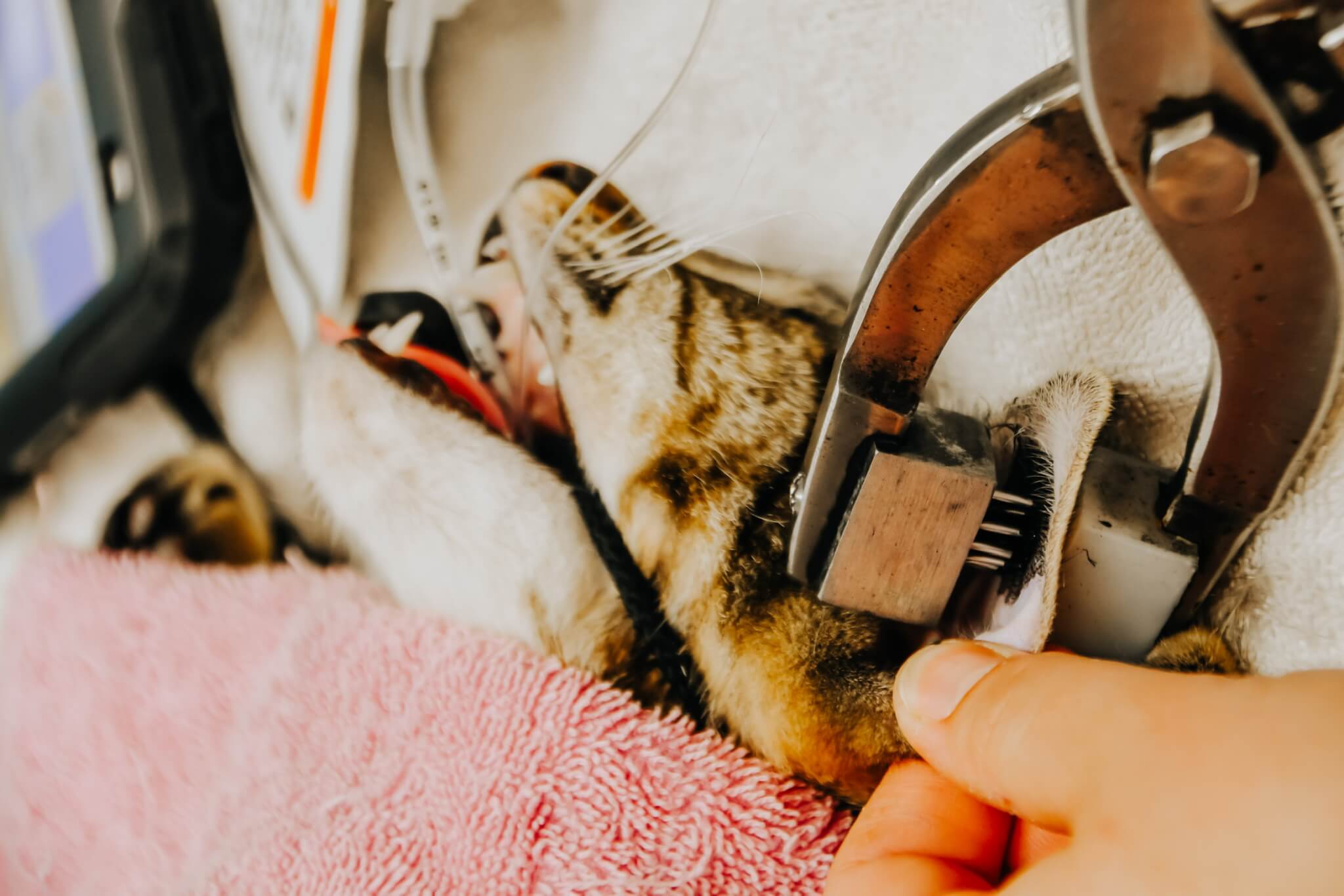The the most commonly asked questions we receive from clients is ‘Why do I have to desex my dog/cat?”. The common answer of course is to prevent unwanted litters, however there are other options to consider.
Some owners put off desexing their dogs due to thinking about having a litter at some stage down the track. What people often forget are the costs involved in breeding pets. Consider if your small breed dog was mated with by a stray dog who was much larger than your dog. This could then cause issues when it came to giving birth and can often end in having to do an emergency cesarean. The costs of raising puppies & kittens until they are sold can also become costly. Some costs include, worming, vaccinating, feeding and microchipping. It is now law in Queensland that all puppies have to be microchipped before going to new homes.
Another thing most people don’t know, is that desexing your pet also helps to prevent your pet from developing mammary tumours, ovarian cancer, prostate and testicular cancer.
Desexing isn’t as scary as some people think. Your pet will only be in hospital for the day and can go home later that afternoon once they have recovered from the anaesthetic. Your pet will often walk out of the hospital that afternoon only slightly drowsy and feeling minor pain as we give them a long acting pain relief injection. Home care isn’t too involved after the surgery- the main issues only being that your pet isn’t running & jumping around for a period of about a week and that the wound remains nice and clean this includes not letting your pet lick or scratch at the wound).
The recommended age to get your pet desexed is around 6 months of age. (However for larger and giant breed dogs we may suggest to wait until they are a little older, if you have a larger breed dog please check with one of our Veterinarian when is the best time to desex.) By desexing your pet at an early age it can also prevent some behavioural issues such as territory marking, aggression and wandering as they don’t feel the urge so much to do these things.
Desexing is a day surgery. Your pet will need to fast, with no food from 10pm the night before but water is ok. An admission appointment is booked between 8:00am and 9:00am with a Veterinarian. This appointment takes 15 minutes with the Veterinarian checking your pets general health, discussing your options and any questions you may have. They then stay with us for the day, the nurses will give you a call once the surgery is complete and let you know what time your pet will be able to be collected, this is usually after 4pm. The surgery cost also includes a recheck appointment a week later to check the surgery site, please note you will need to book this appointment.
Additional options:
– Preanaesthetic bloods (tests the liver and kidney functions). Highly recommended for mature aged pets.
– Buster collar, this will aid to stop your pet from licking the surgery site and causing infection.
– Microchipping, benefit for doing this while under anaesthetic as the needle is larger than a standard needle.
– Brachycephalic (short-headed breeds; pugs, bulldogs etc) – please mention if your have a short-headed breed, as we may recommend additional options.
Please contact us at Alma Street Veterinary Hospital on (07) 49228138 to speak to our receptionist staff if you wish to ask any questions or to arrange an appointment for desexing.
Contact Us to make an enquiry or book an appointment today.
To assist your pet in a healthy recovery from surgery it is helpful to:
• Provide clean, dry bedding in a quiet place. Due to the anaesthetic, your pet may be tired for 1-2 days.
• Provide your pet with a small evening meal of about half the normal quantity. Some patients may not eat after surgery. Always supply clean fresh water.
• Please keep your pet quiet for 4-5 days, as this will reduce swelling and the reaction to the sutures.
• Please check the wound daily for any abnormalities such as excessive swelling, discharge or missing sutures. If your pet is chewing or licking at the sutures excessively, we may need to put a special collar on them to prevent them from irritating or removing the sutures.
• Your pet cannot get wet for atleast 7 days as water can get into the surgery site and cause an infection, this includes bathing and going to the beach.
• Please phone the Hospital on 49228138 to book your recheck appointment (recheck fee is included in surgery price).
If there are any problems after the surgery, such as vomiting or problems with the wound, please do not hesitate to phone us on 07 4922 8138.

Contact Us Today!
Call us or use our online booking system to ensure your pet enjoys the most optimal health possible. We'd love to see you!